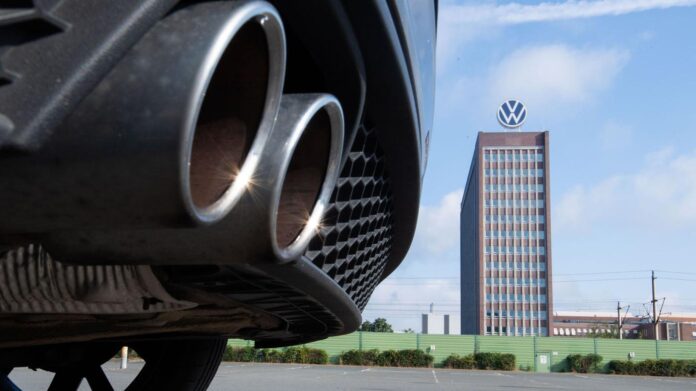
Volkswagen is preparing for a turbulent works meeting. After the announcement on Monday that it would no longer rule out plant closures and redundancies, the board of directors will have to answer questions from employees on Wednesday. Works council chairwoman Daniela Cavallo expects clear expressions of discontent at the works meeting in Wolfsburg. “The workforce is of course very unsettled at the moment.” And she will make that clear on Wednesday when brand boss Thomas Schäfer takes to the podium in the presence of company boss Oliver Blume.
Economic experts, however, were supportive. “The measures announced are long overdue in order to initiate a turnaround and prevent a crisis,” said Marcel Fratzscher, President of the German Institute for Economic Research (DIW). Industry expert Stefan Bratzel from the Center of Automotive Management (CAM) in Bergisch Gladbach spoke of a necessary wake-up call. Without drastic measures, Volkswagen is in danger of becoming a restructuring case in a few years. “The situation is still under control, but in a few years the whole thing could threaten the company’s existence.” This must now be prevented. “And that cannot be done with kid gloves.”
Job security terminated after 30 years
Europe’s largest car manufacturer announced on Monday that it would further tighten the austerity measures it has taken at its core brand VW in view of the worsening situation. The agreement concluded with the works council to secure jobs until 2029 is to be terminated after 30 years, and the closure of entire sites in Germany is no longer taboo. The union and works council immediately announced massive resistance. IG Metall district manager Thorsten Gröger spoke of an “irresponsible plan” that “shook the foundations of Volkswagen”.
CDU leader Friedrich Merz sees Volkswagen’s tightened austerity plans as an economic wake-up call for the federal government. “Germany is no longer competitive enough,” Merz criticized at a CDU event in Osnabrück. This applies not only to Volkswagen, but to large parts of German industry – in addition to the automotive industry, for example, the chemical and mechanical engineering sectors, said Merz. The political framework is primarily responsible for this.
With regard to the VW crisis, Federal Minister of Economics Robert Habeck said that decisions must be made in close coordination with the social partners and that the goal of Germany remaining a strong automotive location must be kept in mind. “All those involved must live up to their responsibility for the employees at the locations.” Habeck called the automotive industry a cornerstone of Germany as an industrial location. “It should stay that way.”
Economists reject government bailout
Leading economists warned politicians against taking targeted rescue measures to combat the threat of factory closures. “Politicians should stay out of this renewal and must not make the mistake of cementing old structures and hindering the necessary transformation,” emphasized DIW President Fratzscher. “Volkswagen’s lack of future viability is primarily the result of its own bad decisions and not the responsibility of politicians.”
Economist Veronika Grimm also warned against direct state intervention. The state certainly has a role to play when it comes to supporting structural change. “But I don’t think directly saving the automobile industry is the right way to go,” she told the “Rheinische Post”.
Federal states fight for their locations
Lower Saxony Prime Minister Stephan Weil had previously called on VW to avoid closing sites. The fact that VW needs to take action is undisputed, said the SPD politician, who also sits on the VW supervisory board. “We expect that the question of closing sites simply won’t arise due to the successful use of alternatives.” The state government will pay particular attention to this. Lower Saxony is VW’s most important site, with plants in Wolfsburg, Emden, Braunschweig, Hanover, Salzgitter and Osnabrück.
Saxony’s Minister of Economic Affairs Martin Dulig (SPD), in whose state three VW plants are located, was also alarmed after VW’s announcement. “The Free State stands by all Saxon locations and firmly by the side of our colleagues in Zwickau, Chemnitz and Dresden,” he said, according to the statement. The pure electric car plant in Zwickau in particular is currently suffering from weak demand for battery-powered vehicles. Saxony therefore supports the calls to reintroduce a sales bonus for electric vehicles, said Dulig. Sales of electric cars had plummeted after the federal government canceled the previous purchase bonus in 2023.
© dpa-infocom, dpa:240903-930-221786/2
This is a message directly from the dpa news channel.
